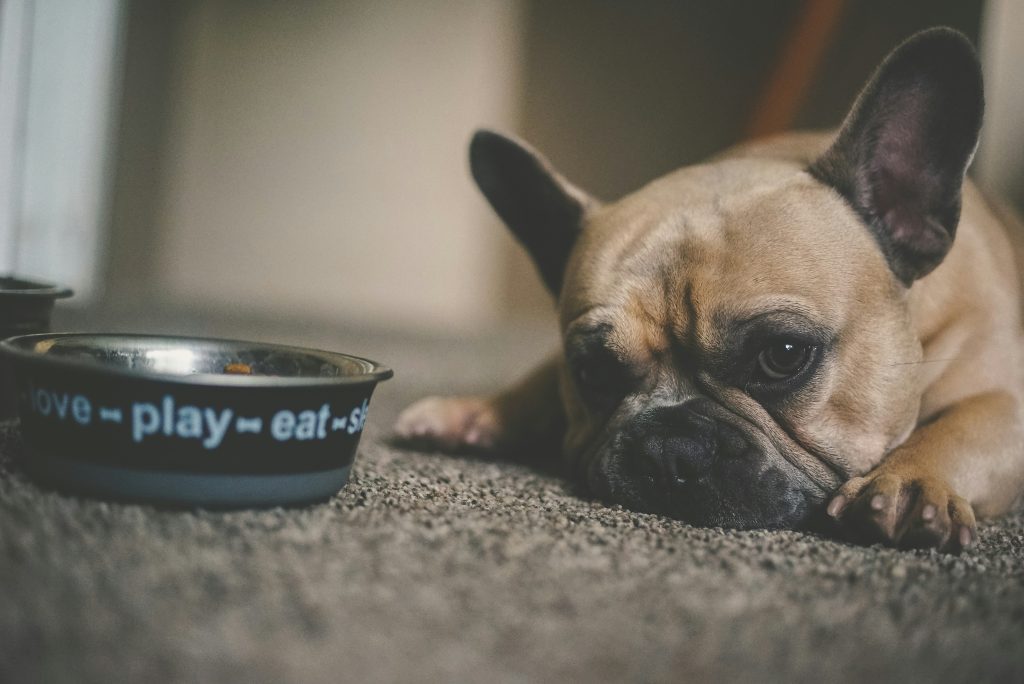Vet Dr Guy Sandelowsky, who also runs the novel protein pet food business Omni has been doing a lot of work in the field of obesity and nutrition. We asked him some questions below about how to spot signs of obesity in your dog, and whether the UK has a wider ‘dog obesity’ problem. Surprisingly, obesity is more of a problem in the summer months when dog owners may be busy with holidays and social activities and forgetful about walking their pets.
5 Signs your dog might be obese:
-Large deposits of fat over the neck, spine and tail base.
-Absence of a tucked appearance at the abdomen.
-Limited ability to feel the ribs with gentle palpation/stroking due to thick layer of fat.
-Prone to overheating in summer months.
-Exercise intolerance and joint disease.
Why are dogs getting fatter? We’re over feeding dogs diets that are too rich in calories and fat and not exercising them enough – the result is 1 in 2 dogs are overweight and suffering as a result.
Does the UK have a pet or dog obesity problem? The UK has a pet obesity problem for sure. Food is used by pet owners to bond with their pets as a cultural norm, but portion sizes are too big, treats are given in excess and generally the nutrient profiles of many diets are optimised for palatability rather than health. A lot of the growing millennial population with pets are not exercising their dogs enough, many spending most of the day at work with their pets left at home and living a relatively sedentary lifestyle contributing to a positive calorie balance, predisposing to weight gain.
Can we learn from other nations who don’t have this problem? No nation is perfect but there are reports of dogs maintaining more optimal body condition scores and weights in India, where a lot of dogs are actually fed plant-based diets mirroring that of their caregivers. They also tend to have more land to run around and burn more calories day to day compared to dogs living in cities like London.
Have you as a vet noticed it getting worse recently? I have noticed that dogs are getting arthritis earlier in life due to the extra weight and strain on their joints. As a vet we often turn to life long prescription pain medication to maintain these pet’s quality of Iife, but over time this can have negative consequences for their vital organs like their kidneys and liver. Sadly, obesity also predisposes dogs to other life shortening diseases like diabetes.
Are there any specific breeds we see this obesity problem with? Some breeds are already genetically predisposed to joint disease like golden retrievers so when these become overweight, everything is accelerated. It doesn’t help that certain retrievers also have a mutated satiety gene, which basically means they never feel full! There is also a misconception that some small breeds like Jack Russells and French Bulldogs do not require much exercise due to their size, so I do see a lot of overweight smaller breeds as a result.
What can or should dog owners / guardians be doing to prevent this?Work with your vet to calculate your dog’s optimal daily calorie intake, this will vary depending on their weight, size, breed and lifestyle. Then try to ensure this calorie target is not exceeded, accounting for all food, treats and other extras like dental sticks in the daily ration. An initial monthly weight check with your vet will help to indicate if you are on track or need to make any adjustments. Choosing reputable diets that are optimised for a healthy weight helps too and of course plenty of exercise and mental stimulation to keep their metabolism up.
How far can diet help in managing dogs’ weight? Even overweight dogs can beg for food and seem to be hungry all the time – this can make limiting their daily calorie intake via diet reduction challenging. There are calorie restricted ‘obesity’ diets out there too, but palatability and portion size adherence can be problematic. Dietary modification is sometimes the only option available, overweight dogs often suffer with joint disease, so they may not be able to exercise more to create a calorie deficit, other solutions to help pet owners with obese dogs are therefore much needed.
Featured Photo by Chris Benson on Unsplash.



